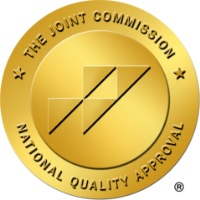What Is Solution-Focused Therapy?
Solution focused therapy (SFT) is a short-term therapy approach, aiming to help you find strategies that can improve your life. Unlike other therapies, SFT shifts the focus away from past problems and instead gently guides clients toward solutions and positive change. SFT is a brief therapy for mental health issues, and it is most effective for individuals who want quick, practical results that lead to lasting change.
Solution-focused counseling is a simple idea in practice, though it does require individuals to be honest with themselves and willing to take an active role in their healing. Once clients see how effective this therapy can be, they usually want to apply it to other areas of their life, such as relationship and family problems, career and academic challenges, and grief and loss. Clients value SFT because it helps them realize that the answers they need are already there; they just have to find the solutions to their problems. This isn’t always easy to do, but SFT therapists can guide individuals down the right path.
East Point Behavioral Health in Massachusetts provides solution focused therapy to clients who prefer a non-directive approach. Our SFT therapists appreciate that this therapy allows clients to safely acknowledge their problems while also recognizing their strengths and the resources available to manage their mental health. When individuals are empowered to actively participate in their own recovery, they are more likely to make changes that stick.
Do You Qualify for Mental Health Treatment in Massachusetts?
East Point Behavioral Health provides specialized mental health care in Massachusetts for adults aged 18 and older. While we do not specialize in substance use disorders (SUD), we address co-occurring conditions and can connect you with trusted SUD treatment referrals if needed. Our mission is to remove barriers to mental health care by offering immediate intervention and prompt access to treatment. Contact us today to start your journey toward mental wellness!
How Does Solution-Focused Therapy Work?
So, how exactly does solution-focused therapy work? During your initial session, your therapist will get to know you and the goal you are hoping to achieve. They will decide which technique to implement at what point to trigger reflection, insight, and solution-finding. The techniques are known to work equally well in online and offline settings.
SFT is designed to be brief, typically lasting 5-10 sessions. As you meet your goals, your sessions will be focused on reinforcing your successes and developing a plan to maintain progress.
The Miracle Question
Your therapist may ask a “miracle question” to get the clarity they need. The miracle question technique invites the client to imagine the future without the problem. For example, your therapist might ask, “If you woke up tomorrow and a miracle solved your problem, what would your life look like?” This shift in thinking can help you visualize positive outcomes and potential solutions. In other words, it focuses on what is possible rather than all the problems that could arise.
Scaling Questions
Subsequent sessions focus on the progress you are making and can now include scaling questions. Your therapist might ask questions like, “What’s better since we last met?” or “What small step did you take toward your goal this week?” Furthermore, your therapist might include scales (typically 1 to 10) and ask questions like, “On a scale of 1 to 10, how confident do you feel today?” In this way, the questions encourage self-reflection and help you identify small steps you can take to feel better. SFT is a goal-oriented therapy, and scaling questions help you measure your progress toward the goals.
Exception-Finding
This SFT technique focuses on examples that fall outside the pattern of problems. It highlights experiences in which you successfully solved your problems by relying on your inner strengths. It shifts the focus from problems to strengths and coping mechanisms that have already proven effective in resolving issues. This method shows that you already have the ability to solve your problems.
Positive Reinforcement
This SFT technique focuses on examples that fall outside the pattern of problems. It highlights experiences in which you successfully solved your problems by relying on your inner strengths. It shifts the focus from problems to strengths and coping mechanisms that have already proven effective in resolving issues. This method shows that you already have the ability to solve your problems.
Complimenting Strengths
This technique implies intentional highlighting of your strengths, qualities, and abilities, as well as effort and success. These compliments are to be genuine and specific so as to empower you. Compliments recognize resilience and courage, helping you see yourself more positively. It helps you develop confidence and belief that your own abilities will result in a solution to your problems.

Who Is a Good Fit for Solution-Focused Therapy?
Solution focused therapy is effective and practical, but it doesn’t benefit everyone. This therapy requires you to deal with a specific problem and come up with helpful action plans. If you are experiencing severe mental health symptoms or trying to process a traumatic experience, SFT is not the right therapy for you. In those cases, programs like trauma-focused IOP or bipolar disorder treatment in MA may be more appropriate. Once those deeper concerns are addressed, SFT can be a helpful tool for building future-focused strategies.
The people who benefit most from SFT are those who are:
Experiencing Relationship Problems
SFT helps individuals work through relationship issues, whether it’s with a romantic partner, a friend, a family member, or a colleague. Working with a qualified therapist, you will explore practical ways to improve your relationships and engage in healthy communication. You can see what works best as you put these ideas into practice in the real world and report back to your therapist, who will be keeping track of your progress.
Dealing With Behavioral Problems in Children
Parents who are dealing with children with behavioral problems will likely find SFT to be helpful. This therapy provides parents with helpful tools and resources needed to help their child make positive changes in their lives. Solution-focused therapy can also help make familial bonds stronger, which means better mental health for everyone and the potential to break generational patterns.
Living With Anxiety and Stress
If you are dealing with anxiety or you are in need of stress therapy in MA, solution-focused therapy (SFT) can offer practical tools for managing your emotions in a healthy way. Anxiety and stress are a natural part of life, but having effective coping strategies can make a big difference in how you respond to them.
One of the key benefits of solution-focused therapy for anxiety is its emphasis on identifying what’s already working in your life. Instead of focusing on the problem, SFT helps you build on your strengths and create realistic, achievable solutions. This forward-thinking approach makes anxiety and stress feel more manageable—giving you the confidence to move forward with clarity and control.

Virtual Therapy That Focuses on Solutions, Wherever You Are
Online therapeutic services are here to stay. Whether you’re managing a busy schedule, live far away from a mental health center, or simply prefer remote access to mental health programs, online psychotherapy will help you overcome your current struggles and build mechanisms for any future challenges.
We at East Point Behavioral Health provide online treatments and programs, as research shows they are equally effective as face-to-face ones. Online solution-focused therapy for adults is a great option for those who seek quick solutions to their mental health challenges but can’t access in-person SFT due to mobility issues, time constraints, or transportation, or who simply prefer a virtual therapy setting.
Our therapists use secure, confidential telehealth platforms to guide you on the path to well-being. This flexible therapy, which you can access from your home, makes mental health support more accessible and relevant in your life.
How Solution-Focused Therapy Fits Into Intensive Outpatient Services
Structured Treatment Environment
Daily Therapy
Tailored Treatment Plans
Group Therapy Options
Positive Outcomes
Why Choose East Point for Solution-Focused Therapy?
At East Point Behavioral Health, we specialize in compassionate, science-backed care, offering person centered therapy for adults across Massachusetts and beyond. Our solution-focused therapy (SFT) is built on accessibility, flexibility, and proven results.
Here’s what sets our SFT approach apart:
- Our team consists of licensed, experienced SFT therapists who are continuously working to improve their skills.
- You’ll work in a calm, supportive, and non-judgmental environment that encourages growth and self-acceptance.
- We offer both in-person and online options, including online medication management in MA, to ensure accessible care for all.
- SFT is integrated into our structured intensive outpatient programs (IOPs) for a more holistic mental health treatment experience.
- Our treatment plans are personalized and tailored to your goals and needs.
- We provide both individual and group therapy sessions, helping you feel heard, supported, and empowered.

Ready to Make Positive Changes in Your Life? Start Solution Focused Therapy in Massachusetts Today
You don’t have to navigate life’s challenges alone. At East Point Behavioral Health, our team is here to help you build meaningful change through solution focused therapy and other proven approaches. Whether you’re managing anxiety, stress, or looking to take the next step in your recovery, our intensive outpatient program offers the structure, support, and flexibility you need. Take the first step toward a more confident, balanced future. Contact us today to get started.
Frequently Asked Questions
How is solution-focused therapy different from traditional talk therapy?
Unlike traditional psychotherapy that dives deep into one’s past, solution focused therapy is focused on present strengths and future goals. Its focus is not so much analysis, but rather solutions. This is a practical, forward-thinking approach, more fitting for those seeking clear progress and actionable steps.
Can I start solution-focused therapy if I’ve never been in therapy before?
Absolutely yes. Solution focused therapy is actually a great starting point, especially for those who haven’t been in therapy before. It’s not threatening, collaborative, and client-oriented. All you need is the willingness to reflect and identify what’s working. Your therapist will guide you through the process.
Is solution-focused therapy effective for long-term issues like anxiety?
Yes, SFT can be equally effective for short-term and long-term issues like anxiety. This is especially true when solution focused therapy is a part of a broader treatment plan. As therapy focused on solutions, it does not explore the root causes of anxiety. However, SFT offers helpful tools to manage anxiety daily, allowing you to develop practical coping strategies for everyday life.
How long does solution-focused therapy usually take?
Solution focused therapy is a brief therapy for mental health. The duration of solution focused therapy typically ranges from 5 to 10 sessions, depending on your specific goals and the progress you’re making. Some people achieve their desired results quickly, while others opt to extend their treatment duration. SFT is flexible and can be tailored to your needs and desires.
Can I switch to solution-focused therapy after another approach didn’t work?
Yes, you can switch to sft even if previous therapeutic approaches were not providing desirable results. Many individuals prefer the practical, goal-oriented approach of solution-focused therapy (SFT) over longer and more overwhelming forms of therapy. We at East Point Behavioral Health can help you understand whether solution focused therapy is the right fit for you.






